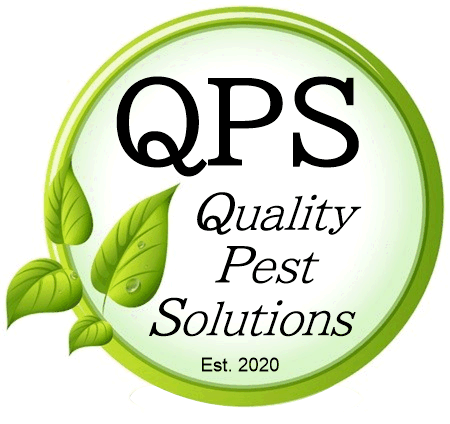Overview:
Cluster flies are often mistaken for houseflies due to their appearance, but they have distinct habits and behaviors that set them apart. They are in the category of “Hibernating insects” along with box elder bugs, Asian lady beetles, and stink bugs. Cluster flies get their name from their tendency to gather in large numbers, particularly in attics, walls, and other secluded areas during colder months. These flies aren’t just a nuisance; their clustering behavior can lead to infestations inside homes, especially when they seek warmth for overwintering. If left unchecked, they can become a persistent problem. Quality Pest Solutions LLC specializes in identifying and eliminating cluster fly infestations with reliable pest control strategies.
Identification:
Cluster flies are slightly larger than common houseflies, measuring around 3/8 to 1/2 inch long. They have a dull, non-metallic appearance with grayish-brown bodies, which are often covered with short golden hairs. Unlike houseflies, which have a smooth appearance, cluster flies have a more textured, slightly fuzzy look. Their wings overlap when at rest, and they move more sluggishly than other fly species.
A key characteristic of cluster flies is their slow and erratic flight patterns, making them less adept at flying compared to faster-moving flies like blow flies or houseflies. When squashed, cluster flies can give off a distinct, somewhat earthy odor.
Life Cycle:
Cluster flies follow a unique life cycle compared to other common flies. Their life begins when adult females lay eggs in soil during the warm months. These eggs hatch into larvae, which then parasitize earthworms, feeding on them as they grow. The larval stage lasts for a couple of weeks before they pupate in the soil. Eventually, the adult flies emerge and continue their life cycle.
In autumn, cluster flies seek out warm places to overwinter, which is why they are commonly found inside homes or other buildings during the cooler months. They enter through small cracks, gaps in windows, or other openings in the structure and hibernate in secluded areas, such as attics or wall voids. Once the weather warms up in spring, these flies become active again, seeking exits to return outdoors and complete their life cycle.
Habits & Behavior:
Cluster flies are unique in that they do not feed on garbage, human food, or decaying matter. Instead, their larvae develop inside earthworms, which makes them less of a direct sanitation threat than some other fly species. However, the adult flies are drawn to warmth and light, which leads them to enter buildings in large numbers as they prepare for hibernation.
Cluster flies are particularly problematic because they hibernate in groups, sometimes numbering in the hundreds or thousands. While they don’t reproduce inside buildings, their sheer numbers and tendency to cluster near windows, light fixtures, and inside wall voids can cause significant annoyance for homeowners.
Though they tend to hide during winter, warmer days can bring them out of hiding, causing them to cluster around windows as they try to escape. Unlike many other flies, cluster flies are sluggish and easy to catch, but their numbers can make them overwhelming if left unaddressed.
Damages & Risks:
Although Cluster flies do not pose direct threat, as they don’t bite, or sting, they are unsightly, unsanitary, and annoying. Their tendency to infest homes in large numbers creates a major nuisance for homeowners.
When disturbed, dead cluster flies may accumulate in hidden spaces like attics, which can attract other pests, such as carpet beetles, that feed on the dead insects. Their habit of clustering and attempting to exit through windows can also lead to unsightly fly specks on glass, walls, or furniture.
In some cases, the sheer number of cluster flies in a home can become overwhelming, and if they die inside walls or attics, the decaying flies can produce a foul odor and attract secondary pests. Therefore, addressing a cluster fly problem promptly is important to prevent secondary infestations and the discomfort of a large fly population inside the home.
Prevention & Extermination:
Prevention: The best way to avoid a cluster fly infestation is to prevent them from entering your home in the first place. Since these flies tend to invade in the fall as they seek warmth for the winter, an exterior barrior treatment is crucial. Also, making sure that doors are closed, and window screens are in good repair are vital.
It’s also a good idea to inspect attic vents, chimneys, and other openings where these flies might find a way in. While cluster flies are mostly attracted to rural areas where earthworms are abundant, they can still be a problem in urban homes if given the opportunity to enter and settle for the winter months.
Extermination: Once cluster flies have entered your home and started to overwinter, professional extermination services are often needed to control them effectively. DIY methods, such as fly sprays or traps, may only provide temporary relief and don’t typically address the full scope of the infestation.
At Quality Pest Solutions LLC, we offer tailored cluster fly treatments that focus on the source of the problem. Our technicians conduct thorough inspections to identify where the flies are entering and hiding, whether it’s in attic spaces, wall voids, or other sheltered areas. We then use targeted insecticides that effectively eliminate the existing population and create barriers to prevent re-infestation.
While removing active flies is important, we also focus on long-term prevention to ensure that the problem does not return next season. This might include sealing entry points, applying residual insecticides, and providing guidance on maintaining a pest-free environment.
As a family-owned business, Quality Pest Solutions LLC is dedicated to offering timely, effective services for Southeastern Wisconsin homeowners. We understand the frustration of dealing with a cluster fly infestation and are committed to providing same-day or next-day appointments to get your home back to normal quickly. Whether you need help now or want to prevent future infestations, our experienced team is ready to offer reliable solutions.
